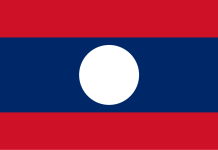The latest aid to the country, totaling $1.57 billion, is intended to assist the Federal Government in enhancing human capital through improved health services for women, children, and adolescents, as well as bolstering resilience against climate change impacts, such as floods and droughts, by improving dam safety and irrigation systems.
This new funding includes $500 million for addressing governance issues that impede the delivery of education and health services (HOPE-GOV), $570 million for the Primary Healthcare Provision Strengthening Program (HOPE-PHC), and $500 million for the Sustainable Power and Irrigation for Nigeria Project (SPIN).
The joint efforts of the HOPE-GOV and HOPE-PHC initiatives will assist the Federal Government in increasing service delivery within the basic education and primary healthcare sectors, which are vital for improving Nigeria’s human capital outcomes.
The SPIN initiative will focus on enhancing dam safety and the management of water resources for hydropower and irrigation in selected regions of Nigeria.
The HOPE-GOV Program aims to rectify fundamental governance deficiencies within the systems and procedures of government in two pivotal human development sectors.
It will specifically address critical cross-cutting challenges and enabling factors related to financial and human resource management in the basic education and primary healthcare sectors.
This program will enhance the availability and effectiveness of funding for basic education and primary healthcare service delivery, improve transparency and accountability in financing, and optimize the recruitment, deployment, and performance management of basic education teachers and primary healthcare workers at the federal, state, and local government levels.
In alignment with the Federal Government’s recently introduced reforms in the health sector, the Central Bank of Nigeria (CBN) has announced that the Health Sector Renewal Investment Initiative, specifically the HOPE-PHC project, aims to enhance the quality and accessibility of essential reproductive, maternal, newborn, child, and adolescent health and nutrition services.
This initiative seeks to significantly lower maternal and under-five mortality rates while bolstering the health system’s resilience, ultimately benefiting 40 million individuals, particularly those in vulnerable communities.
The project is supported by a concessional credit of $500 million from the International Development Association (IDA) and an additional $70 million in grant funding from the Global Financing Facility for Women, Children, and Adolescents (GFF).
The GFF’s contribution includes $11 million from the UK Foreign, Commonwealth & Development Office (FCDO) and $12.5 million from the Children’s Investment Foundation Fund (CIFF), which will be utilized in conjunction with GFF resources to address the financing shortfall for primary and community healthcare, as well as maternal and newborn care at the hospital level.
This support will also assist government initiatives to ensure sustainable financing for family planning supplies.
Additionally, the SPIN Program is designed to safeguard Nigerian citizens against the impacts of floods and droughts by improving dam safety and operations. The initiative will also facilitate the development of new and enhanced irrigation and drainage services across 40,000 hectares.
This effort is expected to directly benefit approximately 950,000 individuals, including households, farmers, and livestock producers, by providing more reliable, climate-resilient irrigation, water supply, and increased agricultural productivity through better irrigation water management.
Through the SPIN project, the government plans to create a comprehensive master plan for hydropower and establish a structured public-private partnership for the hydropower initiative.
“Effective investment in the health and education of Nigerians today is central to increasing their future employment opportunities, productivity, and earnings while reducing poverty among the most vulnerable. This new financing for human capital and primary healthcare will help to address the complex difficulties faced by Nigerians, especially women and girls, around access and quality of services, but also the governance arrangements that also explain these difficulties,” said Dr. Ndiamé Diop, the World Bank Country Director for Nigeria.
“The SPIN program is timely and will protect Nigerians from floods and droughts in the areas where it will be implemented, while enabling an increase in hydropower generation. The direct positive impact of this project on people and livelihoods is enormous. The World Bank is pleased to work with the government and other stakeholders to deliver this program,” Diop added.













